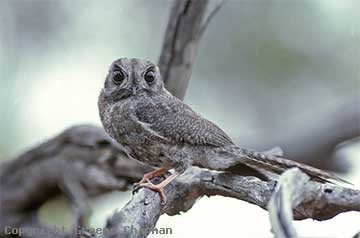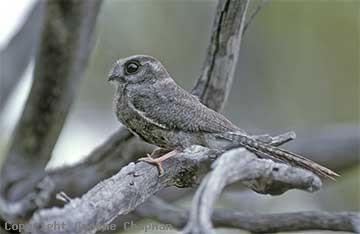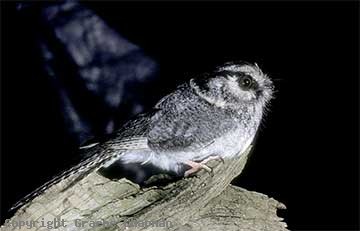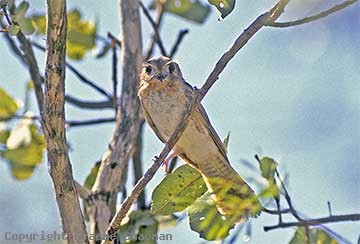Australian Birds
Australian Owlet-nightjar
Aegotheles cristatus
(Viewing 4 of 5 photos)
|

Owlet-nightjars are probably the most widespread night birds in Australia - they are a lot more common than people realise, mainly because few folks are familiar with their calls. Anywhere where there are suitable roost and nesting hollows, from the rain forest all the way out to the central deserts you will find Owlet-nightjars. Anybody who sits quietly outdoors at night will have heard them but few people will ever see them. The daylight hours are spent in a roost hollow out of view although sometimes they may sun themselves at the entrance on crisp, cold mornings. There is some evidence that in cold climates, roosting Owlet-nightjars may enter a state of torpor for short periods during the day then become active again at night. Owlet-nightjars usually have several roost hollows or "bolt holes" - if you disturb one from a hollow during the day it will fly and disappear quickly into another. The same hollows are occupied for years on end, suggesting that they are resident, territorial birds.
They have a wide gape flanked by long bristles (317207), ideal for catching food in flight. Four different colour forms are recognised in HANZAB ranging from dark grey (317201) through to rufous (317205). The recently noticed gradual disappearance of flying insects is likely to have an adverse effect on Owlet-nightjars. Already in 2021 there seem to be fewer judging by the lack of calls in known haunts.
|

317201 ... Australian Owlet-nightjar, dark grey form, Cadoux, W.A. |

317203 ... Australian Owlet-nightjar |
 |

317204 ... Australian Owlet-nightjar,light grey form from western NSW |

317205 ... Australian Owlet-nightjar, rufous form photographed near Borroloola, N.T. |
 |
Previous 1 2 Next
Return to Photo Library page




